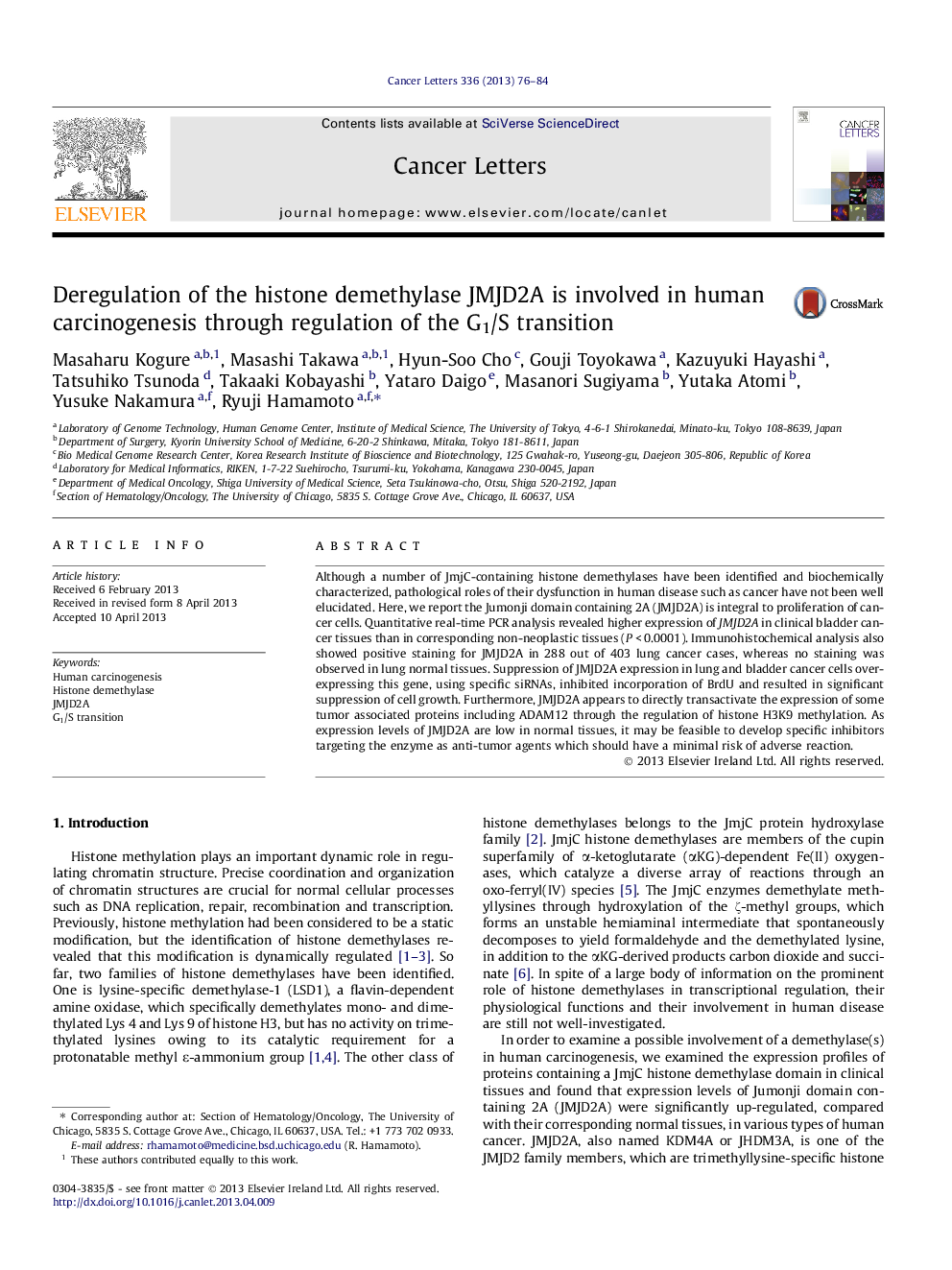| Article ID | Journal | Published Year | Pages | File Type |
|---|---|---|---|---|
| 2112809 | Cancer Letters | 2013 | 9 Pages |
•The histone demethylase JMJD2A was overexpressed in various types of cancer.•Knockdown of JMJD2A expression resulted in the growth suppression of cancer cells.•JMJD2A plays a crucial role in the G1/S transition of cancer cells.•Direct JMJD2A downstream genes were identified by ChIP-Seq and microarray analyses.•JMJD2A appears to be a good candidate for anti-cancer therapy.
Although a number of JmjC-containing histone demethylases have been identified and biochemically characterized, pathological roles of their dysfunction in human disease such as cancer have not been well elucidated. Here, we report the Jumonji domain containing 2A (JMJD2A) is integral to proliferation of cancer cells. Quantitative real-time PCR analysis revealed higher expression of JMJD2A in clinical bladder cancer tissues than in corresponding non-neoplastic tissues (P < 0.0001). Immunohistochemical analysis also showed positive staining for JMJD2A in 288 out of 403 lung cancer cases, whereas no staining was observed in lung normal tissues. Suppression of JMJD2A expression in lung and bladder cancer cells overexpressing this gene, using specific siRNAs, inhibited incorporation of BrdU and resulted in significant suppression of cell growth. Furthermore, JMJD2A appears to directly transactivate the expression of some tumor associated proteins including ADAM12 through the regulation of histone H3K9 methylation. As expression levels of JMJD2A are low in normal tissues, it may be feasible to develop specific inhibitors targeting the enzyme as anti-tumor agents which should have a minimal risk of adverse reaction.
